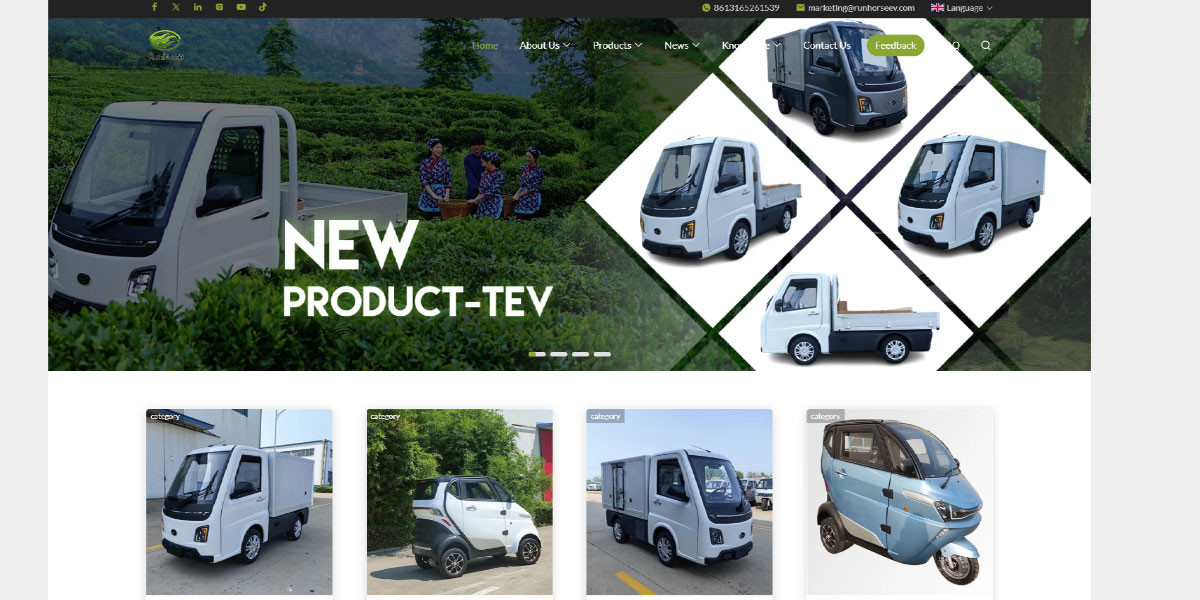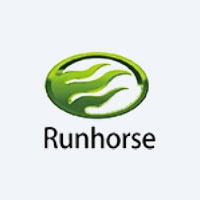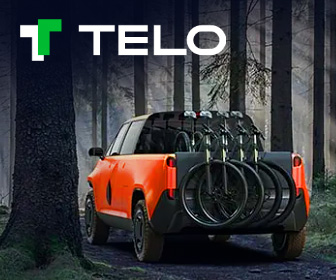About Runhorse Manufacturing Company
Runhorse Electric Vehicles: A Niche Player in Urban Mobility
If you’ve ever found yourself stuck behind the wheel in gridlock and thought, “There has to be a smarter way to move around the city,” Runhorse Electric Vehicles might just be the answer. Headquartered in Qingzhou, Shandong, and churning out low-speed EVs since 1999, Runhorse has quietly carved a lane in the urban micro-mobility space. Their vehicles aren’t flashy—but they don’t need to be. They’re practical, efficient, and built with short-distance logistics in mind. Think e-scooter comfort with a roof and four wheels. Their bread and butter? Compact electric three- and four-wheelers for both people and cargo, tricked out with weatherproof cabins, lithium battery options, and up to 550 kg payloads. Not built for the Autobahn, sure—but for narrow streets, food delivery, and quick hops around the city? They’re tough to beat.
Runhorse Manufacturing: Where Simplicity Meets Scale
Runhorse operates across 270,000 square meters of production territory, split between two industrial zones—one handling bodywork and paint, the other final assembly. With 700 employees, 50 senior engineers, and four assembly lines humming with activity, the facility punches well above its weight in both scale and capability. Runhorse’s commitment to quality is backed up with international certifications like EEC, COC, DOT, and OTTC—so whether you're cruising in Paris or hauling vegetables in Manila, you’re road legal. Their CKD (completely knocked down) and SKD (semi-knocked down) kits simplify global shipping and localization. It’s not just about building EVs—it’s about building them anywhere.
Compact Utility with a Purpose: The Runhorse J-Series
If there’s a star in Runhorse’s lineup, it’s the J-series. The J1 and J2 models offer fully enclosed cabins for two, compact enough to squeeze through crowded streets but with enough juice for the daily commute. Then there’s the J1-C, J2-C, and J2-P—the cargo variants that pack a punch in the logistics world. The J2-P, for instance, hauls 550 kg, making it a quiet workhorse for cold-chain deliveries, food services, and even local construction runs. And yes, there's a dump truck variant for hauling sand and soil over short distances. No leather seats, no gimmicks—just well-built EVs designed for specific jobs, and built to do them well.
Battery Options and Real-World Efficiency
Runhorse offers both lithium iron phosphate (LiFePO4) and traditional lead-acid battery options—giving buyers a choice between long-term efficiency and upfront affordability. While the LiFePO4-powered J1 offers a top speed of 45 km/h, it’s clearly optimized for city driving, not expressways. That’s the tradeoff: you get easy charging and low operating costs, but don’t expect long-distance range or blazing speeds. There’s room for improvement, especially in publishing real-world range and charge time specs. But for last-mile delivery or running errands across town? It’s hard to beat the blend of size, simplicity, and customizability Runhorse brings to the table.
Global Reach: Exporting Practicality Over Performance
You won’t find Runhorse in flashy ad campaigns, but dig a little and you’ll find their EVs in over 30 countries—from Germany and France to Russia and the Philippines. Since launching its J-series in 2018, exports have scaled from 300 units in 2020 to over 1,000 by 2021. CKD factories in Turkey, Portugal, and Russia keep assembly costs in check and support local economies. Want to kick the tires? Belgium has a Runhorse showroom. The company’s quiet but steady growth at global expos like EICMA signals it’s not just a domestic player. It’s building a reputation on reliability and function, not flash.
Customization and Sustainability for City Logistics
Runhorse’s edge lies in its willingness to tailor each vehicle to a specific need. Whether it’s a cargo van outfitted with a refrigeration unit or a passenger EV designed for rain-soaked commutes, customization is the name of the game. It’s a business model that aligns with growing urban sustainability demands—zero-emission vehicles that are tailor-fit for last-mile delivery, public service use, or even campus transport. With the TEV electric truck, Runhorse is also stepping into smarter tech, showcasing models that integrate tracking, data, and route management. Sure, they’re not leading the charge in EV tech—but they’re making practical, eco-friendly urban transport real and attainable.
Support That Shows Up When It Counts
Runhorse gets that buying an EV from a Chinese factory halfway around the world can be a leap of faith. That’s why they’ve invested in professional after-sales service, with round-the-clock support from dedicated reps and visual production updates before shipment. Models like the J1 even come with a three-year warranty. They’re not just boxing up EVs—they’re boxing up trust, complete with wooden crates or iron frames, and shipping them on flexible delivery terms (FOB, CIF, DDU, DDP). There’s still work to be done in building a transparent customer review pipeline, but the bones of a solid service model are clearly there.
View all Products Produced by "Runhorse"
(where we publish the EV description and EV specs for each model)


